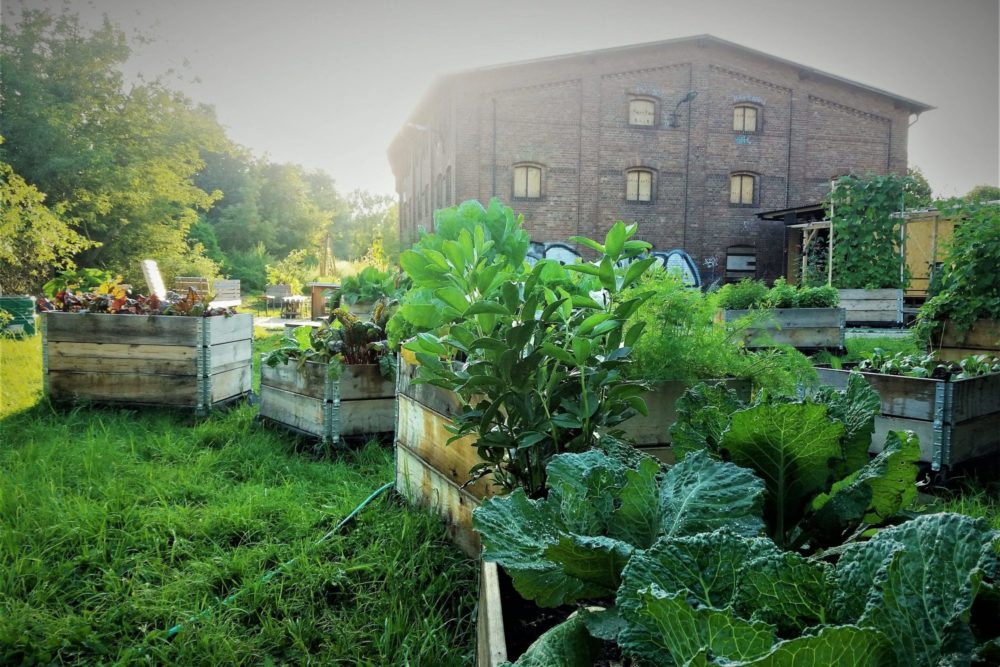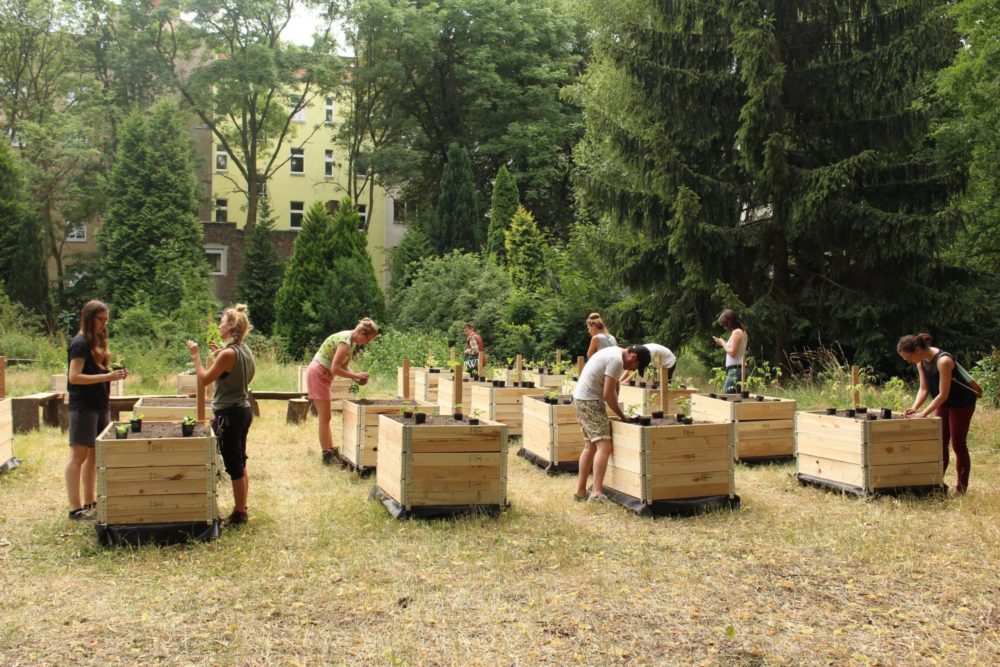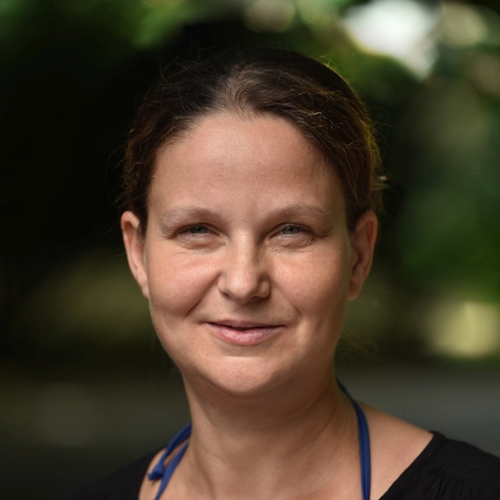Past Project
The Edible Cities Network (EdiCitNet) innovation action began in September 2018 with the goal of making cities around the world better places to live through the real-life implementation and anchoring of Edible City Solutions (ECS) in urban planning.
Millions of city dwellers use urban landscapes for food production. They make a major contribution to sustainable, liveable and healthier cities. A multitude of initiatives around the World, however fragmented, are prospering, forming a global movement of Edible Cities. Their products, activities and services – the Edible City Solutions (ECS) – empower local communities to overcome social problems by their inclusive and participatory dynamics and to create new green businesses and jobs, and thereby generating local economic growth and fostering social cohesion.
The EdiCitNet project leverages the substantial benefits that ECS effect today at a local level and catalyses their replication in Europe and world-wide by launching a fully open and participatory network of cities, empowering their inhabitants
- to systematically explore the wealth and diversity of existing ECS,
- to adapt, plan and implement successfully proven ECS in their specific urban context.
Edible City Solutions (ECS) focus on urban productive landscapes including the wide range of different forms of urban farming, building integrated farming, agro-forestry, aquaculture, biomass production for energy among other productive and ornamental purposes and services combined with closed loop systems for sustainable water, nutrient and waste management.
EdiCitNet aims to launch and develop a sustainable and constantly growing network of cities,
- empowering their inhabitants by a common methodology to systematically explore the wealth and diversity of existing Edible City Solutions (ECS) and to build and share a common knowledge base,
- and to empower city administrations to adapt, plan and implement successfully proven ECS in their specific urban context.
City Teams are the backbone of the project, connecting citizens, SMEs, NGOs, and other relevant organisations in each city to elaborate best solutions through co-creation.
Living Labs are temporal spaces where urban actors test various ECS under real life conditions to develop socially, ecologically and economically resilient cities.
Masterplans apply a systemic approach and lay the groundwork for collaborative planning with City Teams to anchor ECS in the long-term and make cities more attractive for all citi-zens.
The EdiCitNet Network provides knowledge sharing and open access in an integrative and beneficial way to whoever wants to change the world with ECS. The network is constantly growing: Come together with different people from your community, discover your edible city and join us in this global movement!
The Edible Cities Network Project is funded by the European Union’s Horizon 2020 research and innovation programme under grant agreement No. 776665.
For further information on the project see below and explore the EdiCitNet website.
Output
Gerner, I.R., Zerbe, St., Säumel, I. (2025) Voices around the South Tyrolean Herbal Pharmacy – Exploring the stakeholder landscape and perspectives on medicinal plants as culturally salient species. Journal of Ethnobiology (accepted).
Olbertz, M., Wilk, B., Mahmoud, I., Saporito, E., & Säumel, I. (2024). Co-design of NBS with post-industrial communities. In Barbero, S.; Timpe, A. (Eds.), Nature-based solutions for urban renewal in post-industrial cities (pp. 121–149). Routledge. https://doi.org/10.4324/9781003474869-8
Mohr-Stockinger, S., Sanft, S.J., Büttner, F., Butenschön, S., Rennert, R., Säumel, I. (2023) Awakening the sleeping giant of urban green in times of crisis – Coverage, co-creation and practical guidelines for optimizing biodiversity-friendly and health-promoting residential greenery. Frontiers in Public Health. doi: 10.3389/fpubh.2023.1175605
Pueyo-Ros, J., Comas, J., Säumel, I., Castellar, J.A.C., Popartan, L.A., Acuna, V., Corominas, L. (2023) Design of a serious game for participatory planning of nature-based solutions: the experience of the Edible City Game. Nature-based Solutions. Elsevier. (accepted).
Plassnig, S.N., Pettit, M., Reichborn-Kjennerud, K., Säumel, I. (2022). Successful scaling of Edible City Solutions to promote food citizenship and sustainability in food system transitions. Front. Sustain. Cities 4: 1032836. doi: 10.3389/frsc.2022.1032836
Säumel, I., Butenschön, S., Kreibig, N. (2022). Gardens of life: Multifunctionality and ecosystem services of urban cemeteries in central Europe and beyond — Historical, structural, planning, nature and heritage conservation aspects. Front. Environ. Sci. 10:1077565. doi: 10.3389/fenvs.2022.1077565
Säumel, I.; Reddy, S.; Schlecht, T.M.; Wachtel, T. (2022). How to feed the cities? Co-creating inclusive, healthy and sustainable City Region Food Systems. Front. Sustain. Food Syst. – Urban Agriculture. https://doi.org/10.3389/fsufs.2022.909899
Manderscheid, M.; Fiala, V.; Edwards, F.; Freyer, B.; Säumel, I. (2022). Let’s do it online?! Challenges and lessons for inclusive virtual participation. Front. Sustain. Food Syst. – Social Movements, Institutions and Governance, doi: 10.3389/fsufs.2022.732943
Wilk, B., Säumel, I. and Rizzi, D. (2021). “Collaborative Governance Arrangements for Co-creation of NBS”, Croci, E. and Lucchitta, B. (Ed.) Nature-Based Solutions for More Sustainable Cities – A Framework Approach for Planning and Evaluation, Emerald Publishing Limited, Bingley, pp. 125-149. https://doi.org/10.1108/978-1-80043-636-720211012
Mayor, B.; Toxopeus, H.; McQuaid, S.; Croci, E.; Lucchitta, B.; Reddy, S.E.; Egusquiza, A.; Altamirano, M.A.; Trumbic, T.; Tuerk, A.; García, G.; Feliu, E.; Malandrino, C.; Schante, J.; Jensen, A.; López Gunn, E. (2021). State of the Art and Latest Advances in Exploring Business Models for Nature-Based Solutions. Sustainability, 13, 7413. https://doi.org/10.3390/su13137413
Säumel, I.; Reddy, S. E.; Wachtel, T. (2019). Edible City Solutions–One Step Further to Foster Social Resilience through Enhanced Socio-Cultural Ecosystem Services in Cities. Sustainability 2019, 11(4), 972; https://doi.org/10.3390/su11040972 (Cover story of the Special Issue Sustainable Urban Agriculture [4])
Wilk, B., Säumel, I. and Rizzi, D. (2021). “Collaborative Governance Arrangements for Co-creation of NBS”, Croci, E. and Lucchitta, B. (Ed.) Nature-Based Solutions for More Sustainable Cities – A Framework Approach for Planning and Evaluation, Emerald Publishing Limited, Bingley, pp. 125-149. https://doi.org/10.1108/978-1-80043-636-720211012
Scharf, N.; Wachtel, T.; Reddy, S.E.; Säumel, I. (2019). Urban Commons for the Edible City–First Insights for Future Sustainable Urban Food Systems from Berlin, Germany. Sustainability 2019, 11, 966. https://doi.org/10.3390/su11040966
Castellar JAC, Popartan A, Pueyo-Ros J, Atanasova N, Langergraber G, Säumel, I.; Corominas L, Comas J, Acuña V (2021). Nature-based solutions in the urban context: terminology, classification, and scoring for urban challenges and ecosystem services. Sci Total Environ 2021:146237. https://doi.org/10.1016/j.scitotenv.2021.146237
Project Team
Principal Investigator: Dr. Ina Säumel
Project Staff Members: Stephanie Ligan, Marisa Pettit, Edi Emilov, Sophia Kipp, Klara Muranyi, José R. Donoso
Project Manager: Susanne Wrighton
Student Assistants: Elena Heim, Xiaoji Song
Project Partners
The EdiCitNet project works with 32 international partners. You can find the full list here.






